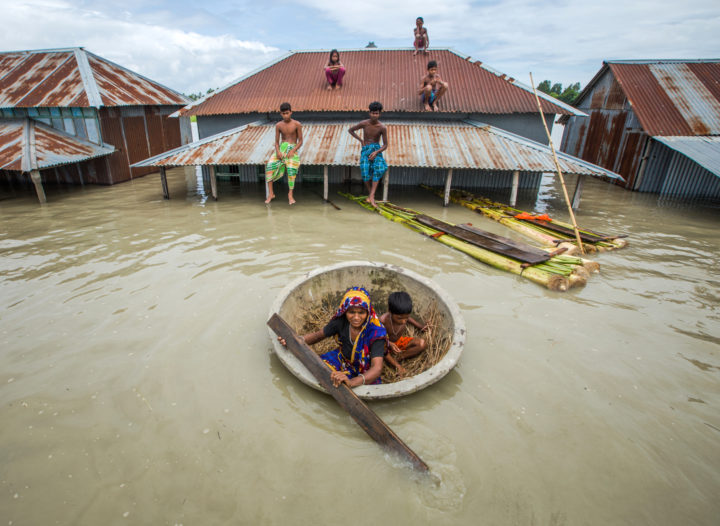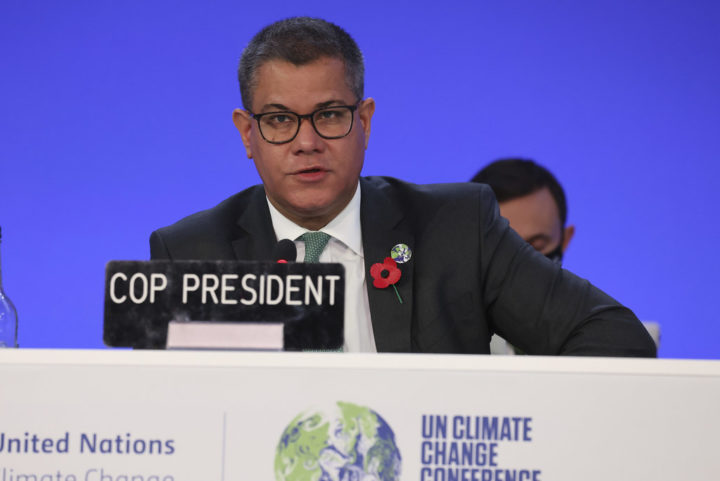Finance key for UK to unlock progress to COP27
The UK presidency has a formidable challenge ahead over the next nine months to implement the Glasgow Climate Pact brokered at COP26; finance will be key to progress ahead of COP27 in Egypt.
By Bernice Lee
Share
Last updated:

Two months on from the final gavel at COP26, attention must now turn seriously to the job ahead for the UK presidency – to implement the Glasgow Climate Pact. With the theatre of negotiations done, what matters now is to ensure that what was promised gets delivered.
The overall outcome can seem glass half full or glass half empty; it is important for the UK presidency to be pushing on the half-full aspects in particular, to go further. With just over nine months before the Egyptian presidency takes up the reins in Sharm El-Sheikh, that means a formidable set of challenges for Britain on the world stage. At the heart of those challenges – finance.
Climate finance commitments: from headlines to action
One of the most obvious shortcomings at COP26 was evident before delegates’ trains even pulled into Glasgow Central. A decade-old promise that wealthy nations would, by 2020, provide $100bn a year in climate finance for developing nations would not be delivered ahead of the summit. Indeed, it will not be delivered until 2023. What is more, the bulk of the money that is committed is concentrated on mitigation – action to cut emissions. Developing countries are, overwhelmingly, also climate-vulnerable countries; they need finance to help adapt to climate impacts.
Adaptation was one area of progress at COP26 – glass half full. The Glasgow Climate Pact includes a commitment from developed nations to double the adaption fund, and for the first time set out a programme to define a global goal on adaption. Governments, though, must move from headline-grabbing summitry, to implementation. On adaptation, that means more projects, more capacity to deliver, and developed countries showing that they are genuinely delivering on these commitments.

Liability fears holding back progress on loss and damage support
However, money troubles plagued other important parts of COP26. As climate impacts multiply and intensify, so the costs of the loss and the damage experienced by people on the frontline of the climate crisis multiply and intensify.
To-date, commitments on loss and damage through the UN climate process amounted to little more than an information-sharing website. Whilst commitments were made to build that out into something more tangible by way of technical assistance and support from the developed world, none of the wealthy historic emitters were prepared to put money on the table. Much like tobacco firms who resisted admitting the effect of their product for fear of expensive legal challenge, nations which developed their economies off the back of the industrial revolution are unwilling to be seen to admit ‘liability’ for the costs of climate change impacts.
Poorer, climate vulnerable parties to the UN climate process sucked up these shortcomings in the interests of securing agreement. They accepted progress that was made – on adaptation finance, completion of the Paris Rulebook, and historic language on coal and fossil fuel subsidies. But only in exchange for a process this year to make real progress on loss and damage. The Glasgow Dialogue will run to 2024, but is likely to see proposals brought to Sharm El-Sheikh for COP27 to press urgently for a ‘finance facility’ – a funding mechanism – for loss and damage.
Private finance: greenwash and green growth
Governments are not the sole source of finance. At COP26, the ‘Glasgow Financial Alliance for Net-Zero’ or GFANZ saw financial institutions claiming to bring $130 trillion of assets to bear for climate action. However, the developing world sees little actual sign of financing on anything like this scale yet. Additionally, the 60 leading commercial banks globally have poured $3.8 trillion into fossil fuels since the Paris Agreement, with 2020 levels of financing higher than those in 2016.
As with a loss and damage finance facility, expectations will grow that private finance institutions step up to make sure the Glasgow announcement was not greenwash – that they are shifting finance from fossil fuels to clean technologies. But also that more of it is available for adaptation to climate impacts, and for loss and damage costs as well.
Finance and goodwill on line at COP27 in Egypt
Relationships between developing and developed nations depend on this – not just the inherent need which poorer countries have for the funding, but also for continued trust and faith in the UN negotiations. If, for example, COP27 were to conclude without significant agreement on loss and damage, then it becomes harder to see where the Egyptian presidency steers the process onwards to COP28, and the UAE. If, for example, banks and investors turn up at Sharm El-Sheikh to talk trillions for climate whilst instead still channelling trillions to coal, oil and gas, then it becomes harder to see how leaders from climate vulnerable nations keep the faith with the COP process.
So far only sub-national governments (Scotland and Wallonia) and philanthropists have donated for loss and damage. So far, almost all wealthy nations fall short of their ‘fair share’ of climate finance contributions. So far, private finance appears talk more than action. And so far, we have seen little new from the world’s multi-lateral finance institutions to move flows towards delivering on Paris; they could do well to start with the suggestion for making use of the IMF’s special drawing rights, made by Barbados PM, Mia Mottley, in Glasgow.

Global Britain and the job ahead
There’s a significant job ahead, then, for the UK and the Egyptian presidencies. That becomes starker next month when the IPCC reports on climate impacts and adaptation, likely offering a vivid picture of where the world is heading without faster and bolder ambition on emissions cuts. Alongside enhanced emissions pledges, particularly from big emitting laggards like Australia and Brazil, progress on finance will be a defining factor, and determine progress at and beyond COP27.
Alok Sharma is clear that finance is one of his four priorities. But the UK must keep building on the good work he and his team have done so far, including on our own domestic legacy: delivering on net zero; enhancing the UK’s own NDC; and mobilising its development budget and other finance, in support of developing nations. For global Britain’s diplomatic challenge ahead, the credibility and goodwill that comes from delivering at home should not be underestimated.
Share